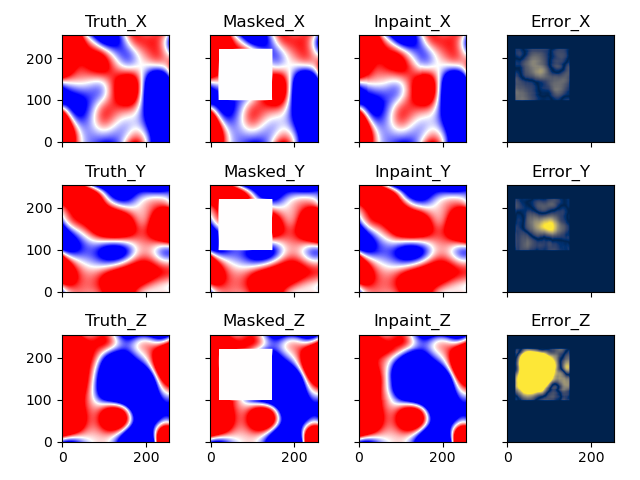Magnetic Field Prediction Using Generative Adversarial Networks
Plenty of scientific and real-world applications are built on magnetic fields and their characteristics. To retrieve the valuable magnetic field information in high resolution, extensive field measurements are required, which are either time-consuming to conduct or even not feasible due to physical constraints. To alleviate this problem, we predict magnetic field values at a random point in space from a few point measurements by using a generative adversarial network (GAN) structure. The deep learning (DL) architecture consists of two neural networks: a generator, which predicts missing field values of a given magnetic field, and a critic, which is trained to calculate the statistical distance between real and generated magnetic field distributions. By minimizing this statistical distance, a reconstruction loss as well as physical losses, our trained generator has learned to predict the missing field values with a median reconstruction test error of 5.14%, when a single coherent region of field points is missing, and 5.86%, when only a few point measurements in space are available and the field measurements around are predicted. We verify the results on an experimentally validated field.
PDF Abstract

